Review for Himizu
Introduction
Can tragedy lead to serendipity? It seems an unlikely suggestion, but in a small way, tragedy did indeed turn out to have something of a silver lining for Sion Sono's adaptation of Himizu. Himizu is a manga from the creator of Ping Pong Club, Minoru Furuya, and is a small, darkly comic tale about a boy trying to find normality in a world that persists in being anything but normal. This was the story that Sion Sono started to adapt into a feature film, but then on March 11th 2011 the earthquake and tsunami struck Japan with devastating consequences. Sono rewrote the script to take in the aftermath of this tragedy, and in doing so, turned a small story into something much more meaningful, with a lot to say about humanity and how it faces adversity.
It's the lie that we're all told in school. Our teachers tell us that the world is our oyster, that we can do anything if we put our minds to it, and that greatness lies in store. For one fourteen year old boy, Yuichi Sumida, that lie is blatantly transparent, and he realises that his sole aim in life is to be normal, average, and mundane. The irony of that opinion is that it makes him stand out in class even more, and he picks up an admirer/stalker in classmate Keiko Chazawa.
If this were his only problem, it wouldn't be so bad, but the world persists in dealing him cards that are anything but normal. He lives in a shack by a river, where his family rent out boats. But following the earthquake, leisure time is the last thing on anyone's mind, and instead they let the displaced from the disaster, now homeless, camp on their land. His alcoholic father abandoned the family, but often shows up to cajole money from Sumida's mother, or just take out his frustrations on Sumida. Sumida's mother on the other hand finds solace in the arms of strangers and just ignores her son. Then one day she just abandons him completely. Sumida is left running the boat rental, and fending off the unwelcome attentions of Keiko. Then one day, the Yakuza come around, demanding that Sumida pay off his father's debts.
Picture
Himizu gets a 1.85:1 widescreen transfer at 1080p on this Blu-ray disc. It's a splendid transfer of a recent film to high definition. Himizu's look is more realistic when it comes to production design and lighting, so the immediate visual impact that you would expect from an HD transfer of a feature film is less pronounced. Having said that, this film is served well in terms of clarity and detail. The only minor gripe may be at the odd moment of compression that reveals itself as colour banding in darker scenes. There's really only one scene that springs to mind as standing out in this way, and otherwise this is a very nice Blu-ray transfer.
The images in this review aren't necessarily representative of the final retail release.
Sound
Audio comes in DTS-HD MA 5.1 Surround Japanese form, with optional translated subtitles. With a few exceptions, this isn't a particularly extravagant surround track, focussing more on dialogue than effects, and it does what it needs to without any problem. The dialogue is clear throughout, and the subtitles are timed accurately and are free of error. The exceptions that I mention refer to the moments of extreme emotion in the story. At these times, the dialogue and ambient sound will drop away, to be overpowered by a thunderous white noise of intense emotion, or a loud musical piece. At moments like this, you may hear pops on the soundtrack, as if it is distorting at the higher ends. I am reliably informed that this is down to the director liking things loud, which unfortunately pushes those scenes on the disc into the red zone. The only alternative would be to push the audio level of the whole movie down, which would have left the quieter parts inaudible. It's a small flaw, and it won't diminish your appreciation for the film.
Extras
The BD disc starts up with the copyright screen and TWF logo, before leading into the animated menu, from where you can access the film's subtitle options and scene selections.
The extras for Himizu are all on the second disc, an NTSC DVD.
The most substantial is the Making Of documentary, which lasts 73 minutes. It follows the filming of the movie from beginning to end, and features interviews with the cast and crew, and behind the scenes looks. It's very interesting to see how Sono works, and the intensity he brings to the set.
There are 27 minutes worth of deleted scenes, 12 in all, which play in a single reel. They are chaptered for convenience, and offer some interesting alternate, extended and just plain deleted scenes.
The Denden interview lasts just over 19 minutes, and he talks about working with Sion Sono, with reference to his role in Himizu, and his role as Murata in Cold Fish.
These extras are presented in widescreen, with 2.0 Japanese audio, and with optional subtitles.
The trailer for the film lasts 2 minutes, but has burnt in subtitles.
Also on this disc are 13 trailers for further Third Window product, including the forthcoming Kotoko, and Isn't Anyone Alive.
Finally there are a couple of weblinks for Third Window Films.
Conclusion
In a change from my usual practice, I've left something of a gap from my viewing of Himizu to getting around to writing about it. It's definitely an experience I wanted to think about, and let sink in, before organising my thoughts. It will also mean that I'm not quite as clued up on the specifics of the plot as I would be the morning after, although if that means a paucity of spoilers in the review, that's probably a good thing. I've seen three Sion Sono films through the auspices of Third Window Films, and I have to say that Himizu is his best film yet. Love Exposure was fantastic, epic in scale (and length) and utterly gripping, and while Cold Fish's dark psychological horror isn't exactly my cup of tea, I enjoyed that film for what it was. What Himizu does with character and motivation transcends these earlier films, creating a story that affects and speaks to us all.
It's the tragic serendipity of the 2011 Earthquake and Tsunami that has made it thus, as from what I've read about Himizu the manga, it's a small, personal story that is about a young boy trying to live a normal life, but put under increasing strain by his circumstances. With the aftermath of the 2011 disaster as the film's setting, it transforms this story into something much larger and meaningful. It becomes a tale about a whole nation strained past breaking point by circumstances, and Sumida's life is counterpointed by what is going on around him. It makes Himizu a distressingly poignant tale, but at the same time, and given the film's altered ending, a surprisingly hopeful and uplifting one as well. Himizu is another Sion Sono film that takes the viewer on a bumpy and awkward ride, challenging preconceptions and provoking thought, but in the end, it's a wholly worthwhile experience.
Himizu is a coming of age drama that follows Sumida's character through various crises. He's professed at school to a lack of ambition, something which ironically makes him stand out enough to catch the eye of classmate Keiko. He feels that in a culture driven to excel and succeed, being nondescript and average is good enough, that doing a simple job and earning enough to live off, is enough. Somewhere along the line, this becomes a desire to wall himself in, and bury himself away from society, become the mole of the title. Given the challenges he faces, this becomes an extreme wish, although given an alcoholic and abusive father, and a neglectful mother, who can blame him? Keiko becomes his only connection to the world, even if it is a connection he tries to refuse. Keiko's life is just as tragic, with parents just as horrible, but she at least is sustained by her love for Sumida, unrequited though it is. Initially she seems like a stalker type, but it quickly becomes clear that she has limits to how much abuse she'll tolerate from Sumida, even though she supports him unconditionally. She becomes the key that will help Sumida learn to engage with the world and grow as a person, although it's far from a simple process.
What fascinated me about this film was the way it explored people in stressful situations, how they reacted to and dealt with adversity, which was in turn transposed to the nation as a whole, dealing with the aftermath of disaster. There's something of a 'Keep Calm, and Carry On' ethos about Japanese society which jibes with British attitudes to hardship, a sense that we must cling to normality no matter the situation, that the trains will still have to run tomorrow, that someone has to make sure the milk is delivered. Admittedly we've lost some of that attitude in the last couple of decades with the rise in living standards and cross-cultural pollination with US attitudes, but it appears to still hold strong in Japan. The thing about such attitudes is that while it may keep the majority strong, it imposes greater stress on individuals for whom there is no easy emotional outlet, hence Sumida's desire to be average, and the way that both his and Keiko's parents treat their respective children.
All through the film we see examples of people on the edge, from the achingly positive schoolteacher who tries to enthuse his class with false optimism, the social dropout finding refuge in far right ideology, to the would-be slasher who stalks through the crowds looking for victims. In recent years there have been a rash of news reports about knife attacks in Japanese cities, people who just crack and lash out at random passers-by with tragic consequences. This is one of the rare films that try to understand and explain what motivates such actions. It's interesting to see that the people who deal most effectively with such changes in fortune are those who are most used to such things, the criminal classes, or at the other extreme those who have nothing at all left to lose. Of all the characters that we meet in this film, those who seem the most happy and at ease in their lives are the refugees who have lost everything in the disaster, and are living in makeshift tents outside Sumida's shack.
Himizu is a thought provoking and intelligent film with much to say about how people deal with stressful situations. It's also a deftly crafted character study which takes you into the psyches of its characters in a way that few films can manage. Most of all it's a gripping and emotional story that will hold you entranced for its runtime, taking you on just as tortuous a journey as that suffered by its protagonist, but one that is ultimately very rewarding. Once again Third Window Films come up trumps with a Blu-ray release that is very delectable. Note that the week after Himizu; Sion Sono's Love Exposure will also see a Blu-ray release.
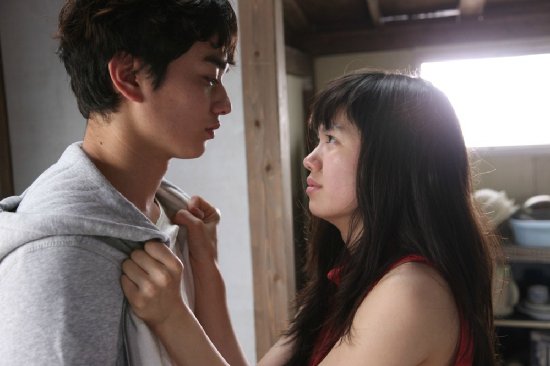
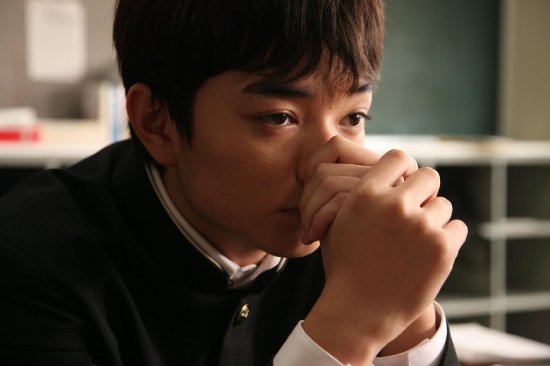
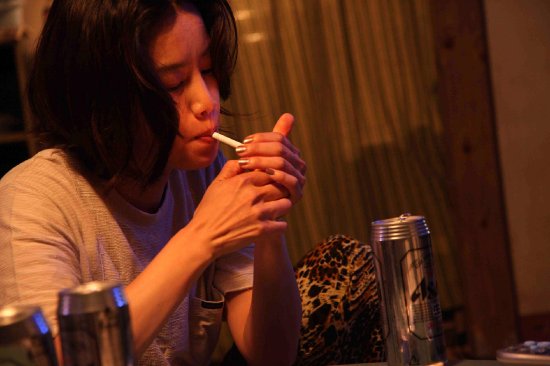

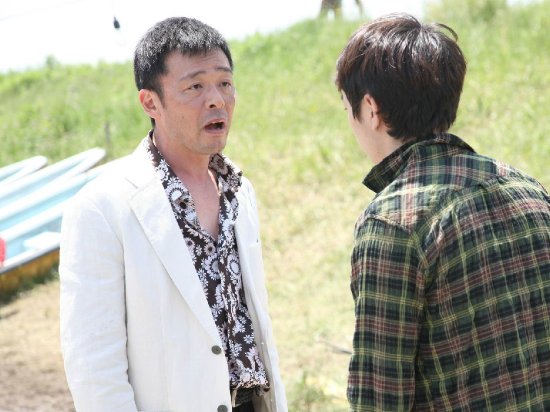
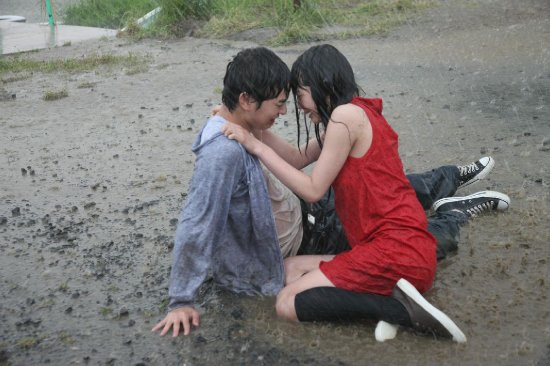
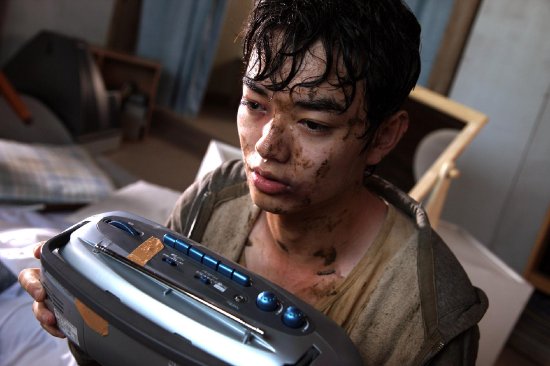

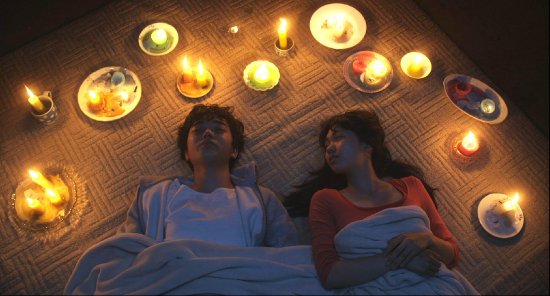
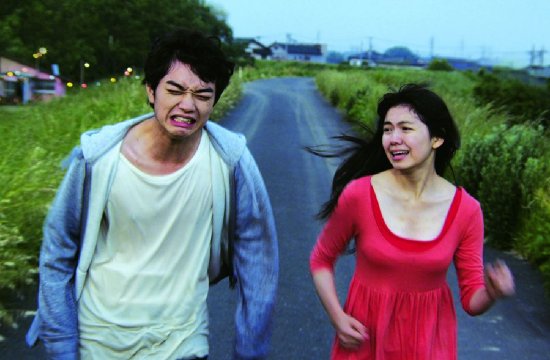
Your Opinions and Comments
Be the first to post a comment!